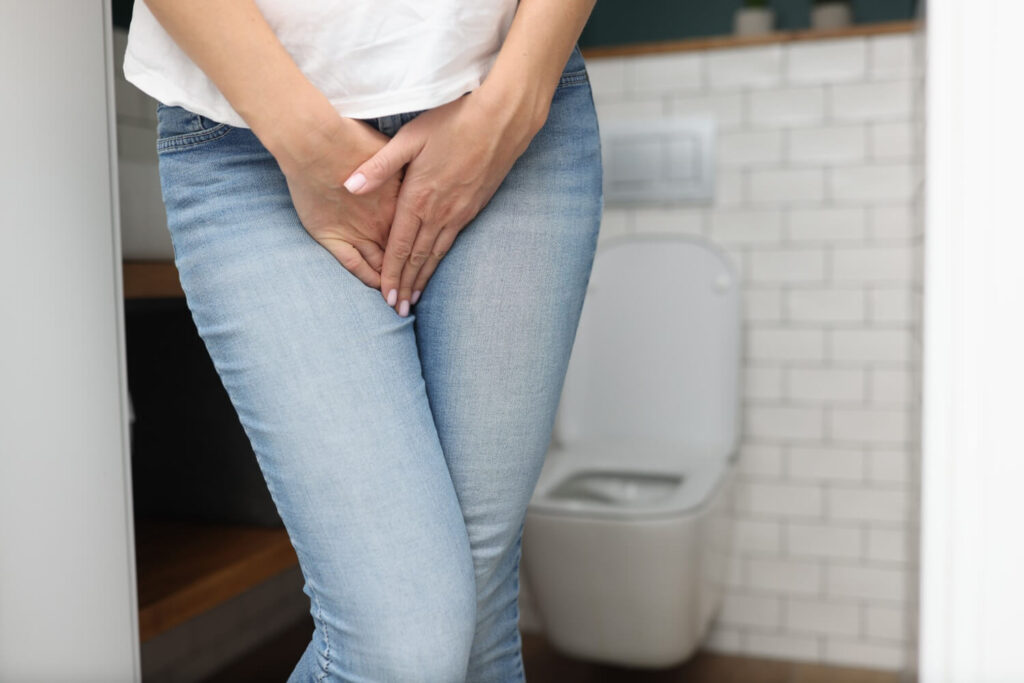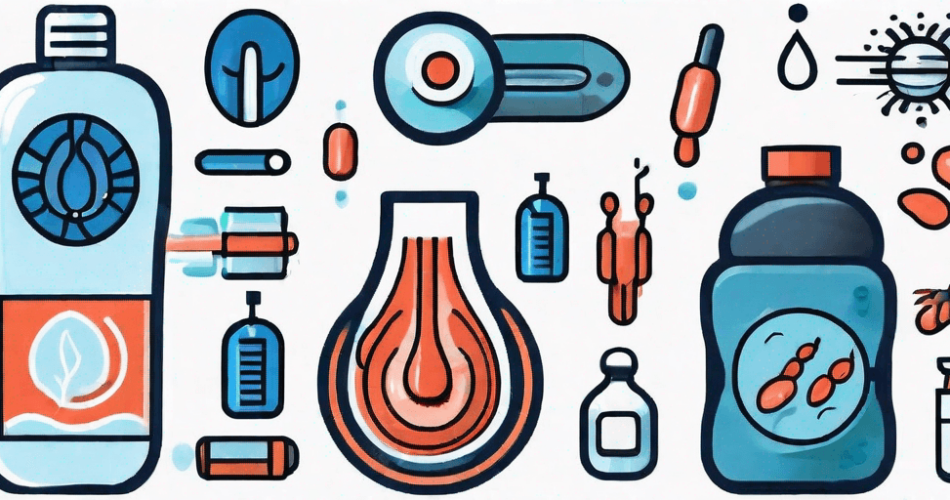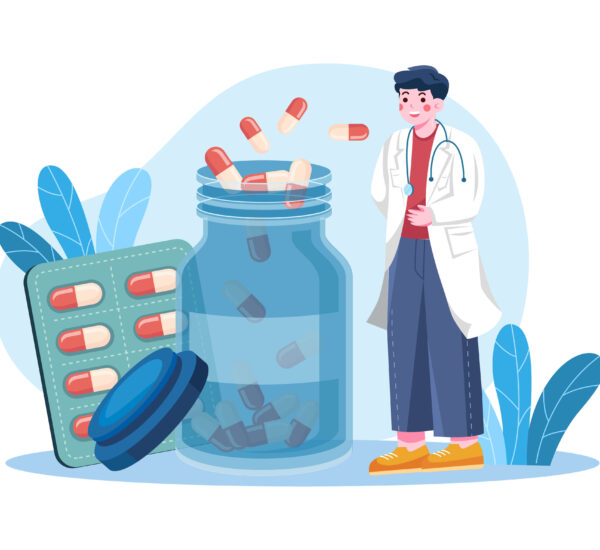Introduction
Urinary tract infection is a common health issue that affects millions of people each year. This infection can affect different organs in the urinary system, thus making it high time to address this condition. In today’s blog, we’ll identify the 10 causes of UTI.
Understanding the UTI causes are important in order to prevent and treat them effectively. Let’s explore each of them ranging from hygiene-related factors to underlying health conditions.
Understanding Urinary Tract Infection (UTI)

The urinary system plays a vital role in the body’s waste elimination process. The kidneys filter waste products from the blood, producing urine that travels through the ureters to the bladder. From the bladder, pee is expelled through the urethra. When bacteria enter the urinary tract, it can disrupt this delicate system, causing an infection. In short, signs of infection occur, resulting in the increase of white blood cells than red blood cells.
Anyone can get UTI, but it is more prevalent with women due to their anatomy. Female anatomy involves shorter urethra, which allows bacteria to reach the bladder more easily. Once the bladder is infected, the patient can experience symptoms of a UTI like pain and discomfort, especially during urination.
If this continues to persist, possible complications may happen such as kidney infection, bladder infection, and other kidney diseases. That’s why patients are encouraged to consult with a doctor early on for initial diagnosis and prevention plans.
What are The 10 Causes of UTI in females and males?
When it comes to contracting an infection in the urinary tract, it is important to understand that there are various factors that can influence that outcome. While UTI can be more common in women, men can also suffer from this health condition.
Commonly, these factors that causes UTI are related to poor habits or hygiene. Meanwhile, UTI can also root from other conditions that affect one’s hormones.
Let’s identify the top 10 causes of UTI in females and males below!

Habit of Wiping From Front to Back
Proper personal hygiene plays a crucial role in preventing UTI. This includes wiping from front to back after using the toilet. Bowels can have certain bacteria that can result in UTI. So, wiping from front to back after using the toilet helps to prevent the spread of bacteria from the anal area to the urethra, reducing the risk of infection. It is important to use gentle, unscented toilet paper to avoid irritation and potential UTI.
Improper Genital Hygiene
Regularly washing the genital area with mild soap and water is another important aspect of personal hygiene that can help prevent UTIs. This practice helps to remove any bacteria or debris that may have accumulated, reducing the risk of infection. By neglecting to follow proper hygiene, it can increase the risk of a UTI. Thus, making it a known cause of UTI.
At the same time, not changing one’s underwear regularly can promote the build up of bacteria. The moisture can lead to the formation of E.coli, and travel to the urinary tract. If left untreated, it can result in an infection.
Holding Urine in The Bladder
One of the most crucial bathroom habits is to urinate frequently. By emptying the bladder regularly, any potential bacteria that may have entered the urinary tract can be flushed out, reducing the chances of infection. Holding in urine for long periods of time can allow bacteria to multiply, increasing the risk of UTIs.
Using Public Bathrooms Frequently
Toilet seats can harbor bacteria and other pathogens, which can be transferred to the genital area when using the restroom. It is advisable to use disinfectant wipes or sprays to clean the toilet seat before use, especially in public restrooms where the risk of exposure to bacteria is higher.
Additionally, avoiding public restrooms whenever possible can also help reduce the risk of UTI. Doing so, can save your urinary tract health as exposure to bacteria can be avoided in this situation.
Not Drinking Enough Water
Staying hydrated is not only important for overall health, but it also plays a crucial role in maintaining urinary health. When you drink an adequate amount of water, it helps to flush bacteria out of the urinary tract, reducing the risk of infection. Drinking plenty of fluids, specifically water, ensures that your urine is diluted. Thus, making it less likely for bacteria to thrive and cause an infection.
Drinking Caffeinated and Alcoholic Beverages
Caffeine, commonly found in coffee, tea, energy drinks, and chocolate, is a diuretic that can increase urine production. This cause of UTI can potentially lead to more frequent urination, which may increase the chances of bacterial growth in the urinary tract. Similarly, alcohol acts as a diuretic and can dehydrate the body. It reduces the flushing effect of urine allowing bacteria to thrive.
Sexual Activity
It is worth noting that sexual activity itself does not directly cause UTIs. Rather, it serves as a potential avenue for bacteria to enter the urinary tract. Bacteria can be introduced from various sources, including the skin, anus, or vaginal flora. Therefore, maintaining proper hygiene practices before and after sexual activity is crucial in reducing the risk of UTIs.
Engaging in sexual activity can introduce bacteria into the urinary tract, leading to UTIs. During sexual activity, the friction and movement can cause micro-tears in the genital area, creating an entry point for bacteria. Additionally, the pressure applied to the urethra during intercourse can push bacteria from the genital area into the bladder, leading to an increased risk of UTIs. In that case, it is ideal to wear condoms to avoid possible infection during intercourse.
Not Accommodating Hygiene Practices Before and After Sexual Activity
Proper hygiene before and after sexual activity, including urinating and cleaning the genital area, can help reduce the risk of UTIs. To reduce the risk of UTIs during sexual activity, it is recommended to empty the bladder before and after intercourse. This helps flush out any bacteria that may have entered the urinary tract during sexual activity. Additionally, urinating before sexual activity can help reduce the pressure on the urethra during intercourse, minimizing the chances of bacteria being pushed into the bladder.
Pregnancy
Meanwhile, one of the 10 causes of UTI in females may involve pregnancy. Becoming pregnant can result in hormonal changes, which can be a factor that affects maternal health. Furthermore, pregnancy also affects the immune system of the mother, which makes them prone to this condition. Once that happens, the health of the baby can also be compromised.
Diabetes
Lastly, a patient with a pre-existing condition such as diabetes can also be prone to UTI. A diabetic patient mostly has urological issues. If you currently have diabetes, it would be best to check with a specialty doctor to diagnose your kidney health.
These 10 causes of UTI are composed of common day-to-day activities that people do. By understanding each, patients, especially women can prevent the possibility of contracting the disease. Furthermore, they can remain a healthier urinary system, and prevent developing other kidney conditions.
Underlying Health Complications and UTIs

In connection to the common causes of UTI, recognizing possible risk factors that can lead to UTI may also help save the patient’s urinary health. These factors can involve underlying conditions that can complicate one’s urinary health, which should not be underestimated. If you think your UTI must have resulted from such types of conditions, then it’s best to seek immediate help.
Here are some of the known kidney complications that are closely related to UTI.
Diabetes and UTIs
Individuals with diabetes have a higher risk of developing UTIs due to the elevated levels of sugar in their urine. The excess sugar provides an ideal environment for bacteria to thrive. Proper diabetic management, including blood sugar control and regular urine testing, can help prevent UTIs.
Kidney Stones and UTIs
Kidney stones can cause UTI by obstructing the flow of urine, allowing bacteria to multiply. The presence of kidney stones can increase the likelihood of developing chronic UTIs. Treating kidney stones promptly and adopting preventive measures can help minimize the risk of UTIs.
Managing underlying health conditions are all essential in reducing the risk of UTI. If you experience symptoms of UTI, it is crucial to seek medical attention for proper diagnosis and treatment.
Menopause and UTIs
On the other hand, menopause is another health complication related to UTI. When a female gets older, they experience the imbalance of hormones like estrogen. This phenomenon may result in changes in the urinary tract, making it more susceptible to infections. The decline in estrogen levels can lead to thinning of the walls of vagina and a decrease in healthy bacteria. Thus, creating an environment favorable for UTI-causing bacteria to thrive.
Hormone therapy or vaginal estrogen treatments may help reduce the risk of UTIs in menopausal women. Regular check-ups with healthcare providers can also aid in monitoring and managing any potential urinary issues during this stage of life.
Why Consultation is A Must and When to Get Treatment

Early diagnosis and UTI treatment is crucial to prevent complications. If left untreated, UTI can spread to the kidneys, leading to a more severe infection called pyelonephritis. This can cause high fever, back pain, and potentially life-threatening complications.
It is important to seek medical attention if you experience UTI symptoms. Doing so can help improve the health status of the patient, and also prevent the further risk that they can experience.
Frequently Asked Questions (FAQs) About 10 Causes of UTI in Females and Males
Conclusion
Poor hygiene and improper bathroom habits are not the only factors to consider when solving UTI. This comprehensive blog covers the 10 causes of UTI, giving light to its impact to urinary health.
Discover whether or not you have a healthy urinary system. Book a consultation with a urologist or other UTI doctors on NowServing!



